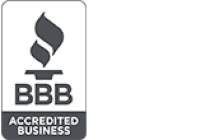There are pros and cons to selling your primary residence or renting it out. Should you take a lump sum of cash or hold on for monthly cash flow? We’ll break down the advantages and disadvantages of both scenarios.
Reasons to Sell Your Home
You Need To Make a Down Payment on Your Next Home
One of the most obvious reasons to sell your home is if you need the money to buy another. How much you owe on your home will determine how much you can as a downpayment or if you can buy another home outright for cash.
If your home has increased in value, you might want to scale up from a starter home into something bigger. Conversely, if you are downsizing, releasing the equity in your current residence will enable you to do both.
You Have no Interest in being a Landlord
Many people, understandably, have no desire to be a landlord. They don’t want to be responsible for repairs, upgrades, chasing tenants up for rent, or, in a worst-case scenario, having to evict them. Also, if a tenant doesn’t pay, the landlord is still responsible for the mortgage. That’s a lot more pressure and responsibility than many former homeowners are willing to bear.
Hiring a property management company is an option. However, they come with a fee which lessens the profit. If there is just one home that needs management, some landlords prefer to do it themselves. So it makes more sense to use a management company with multiple properties. It’s for this reason that many property owners skip being landlords.
Capital Gains Exemptions Are a Good Reason to Sell
If a homeowner has lived in their primary residence for two out of the previous five years, they are eligible for an exemption on their capital gains payment when they sell their home. This goes up to $250,0000 for single homeowners and $500,000 for married couples. Receiving the total amount of equity (minus closing costs and transfer taxes etc.) is a big incentive to sell a primary home.
When to Rent Your Home
When You Plan to Return to Your Home at a Later Date
If you’re planning on a temporary move, such as a work relocation, it might be worth looking into renting your home instead of selling it. This will give you peace of mind, knowing you’ll have a place waiting for you once you return. If you decide to rent it fully furnished, you won’t need to move or store furniture while you are gone.
If You Want to Make Extra Money Through the Rental Income
Rents are currently skyrocketing in the US. If you are locked into a low-rate mortgage and have a low payment, selling it might not be worth it. Instead, rent out your primary residence and make extra income from the rental. In this scenario, if you want to buy another home, you will be allowed 75% of your rental income to count towards helping you qualify for a new mortgage. Also, if you don’t touch the rent income and instead apply it to the principle of the remaining mortgage (if there is a mortgage), you can pay down the loan. This creates more significant equity and eventually increases your monthly revenue once you refinance.
Capitalize on Your Home’s Appreciation
If you expect home prices to go up, it could be worth holding on to your primary residence. Your tenant will pay the mortgage while you enjoy the appreciating value of the home.
For Tax Deductions
Turning a primary residence into a rental property makes it eligible for tax deductions such as depreciation. Additionally, any expenses the property incurs, such as renovation expenses, are also deductible. For example, owning a rental property is the way to go if you want to reduce the tax burden of a high-paying job.
Conclusion
Both renting and selling a home will incur costs. Selling a home incurs closing costs (commissions, transfer taxes, legal fees, staging, loan payoff). Renting a home incurs continual upkeep and repairs, taxes, insurance, mortgage, tenant screening, evictions, and property management (if outsourcing).
People might be more persuaded to rent their home if guaranteed a certain monthly rental amount without the inconvenience of managing tenants and dealing with repairs. This is partly why the vacation rental business has taken off. It overcomes the hassle of having a long-term tenant who might not pay. Vacation rentals generate far more income than regular yearly rentals. In addition, the vacation homes are regularly cleaned and repairs are taken care of, keeping the home in immaculate condition.








